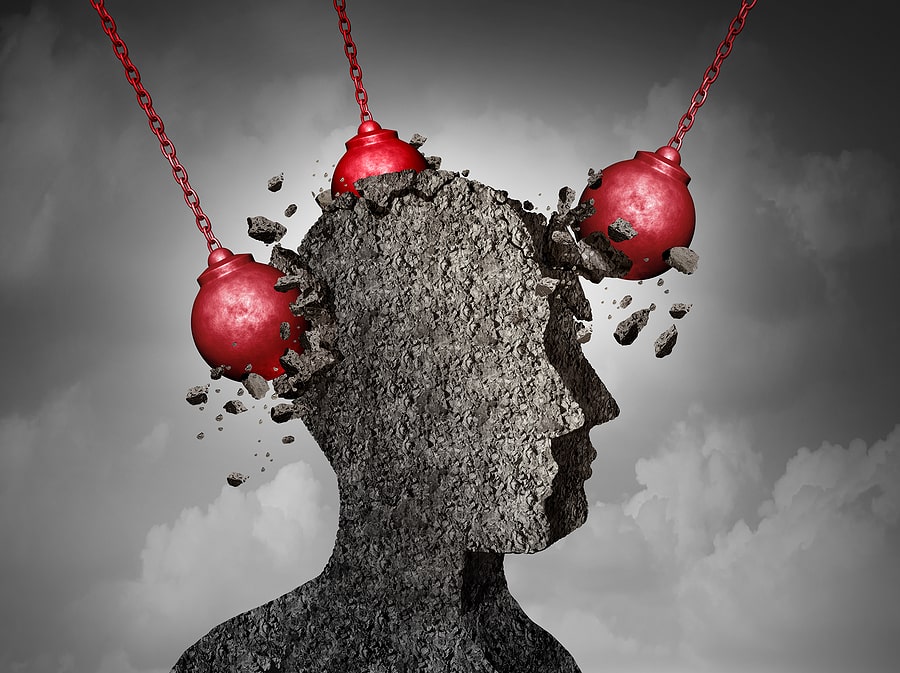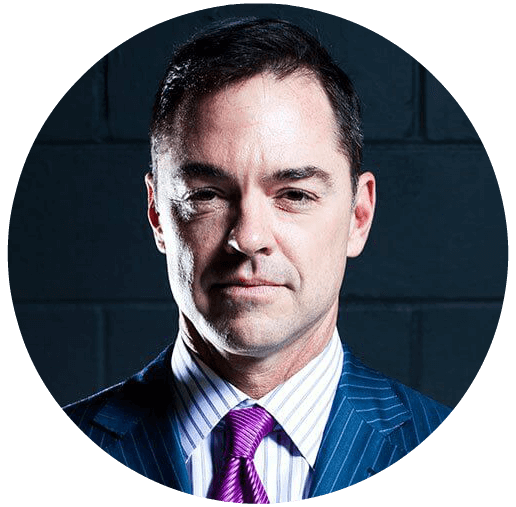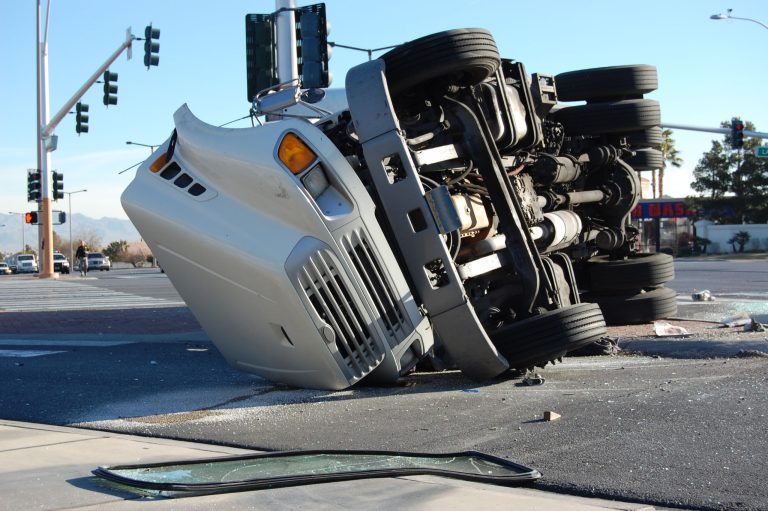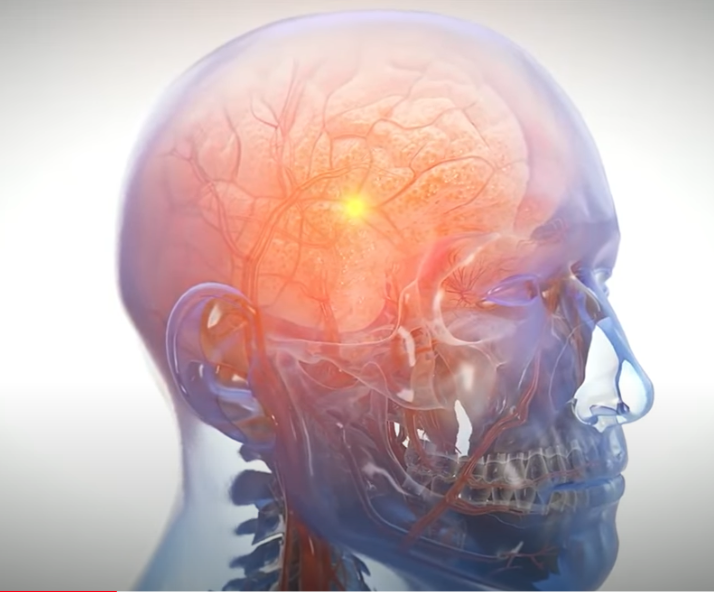 At Gomez Trial Attorneys, we find that people often think a concussion is not serious enough, as injuries go, to give them legal rights to compensation. When we encounter one of these individuals, we always tell them that nothing could be further from the truth and that the term “mild traumatic brain injury” is a prime example of a misleading use of words.
At Gomez Trial Attorneys, we find that people often think a concussion is not serious enough, as injuries go, to give them legal rights to compensation. When we encounter one of these individuals, we always tell them that nothing could be further from the truth and that the term “mild traumatic brain injury” is a prime example of a misleading use of words.
In fact, there is nothing mild whatsoever about a so-called mild traumatic brain injury. A brain injury, by definition, is a serious medical condition with potentially permanent consequences for its victim. Individuals who suffer any kind of traumatic brain injury because of someone else’s careless, reckless, or intentionally-harmful actions deserve compensation for their injuries and losses. The Gomez Trial Attorneys team can help them get it.
Below we take a deep dive into “mild” traumatic brain injuries (a.k.a. concussions): how they happen, their long-term effects, and what a lawyer can do for concussion victims to help them regain their health and rebuild their lives.
Mild Traumatic Brain Injury: What it is, and isn’t
A traumatic brain injury (TBI) occurs when the brain sustains damage as a result of an external force, usually a blow, jolt, or penetrating injury. The initial force typically causes direct damage to brain tissue by causing the brain to shift, rotate, or deform inside the skull. Further damage often follows that initial injury, the result of bleeding or swelling that increases pressure inside the skull. In the case of a penetrating injury, an infection can cause further complications.
Doctors classify TBIs as mild, moderate, or severe.
The classification of a traumatic brain injury reflects the presence or absence of certain diagnostic criteria immediately following the injury-causing event, including:
- Whether the patient lost consciousness;
- Whether the patient suffered amnesia (memory loss) surrounding the circumstances of the injury;
- Whether the patient suffered an altered mental state (confusion, disorientation) at the time of the injury;
- Whether the patient suffered neurological impairments (such as dizziness or weakness) at the time of the injury; and
- The visible presence of abnormalities (or lesions) in diagnostic scans of the patient’s brain.
Note that the classification of a brain injury focuses on the immediate symptoms the victim shows after suffering a TBI. That is because the classification serves, at least in part, as a rough guide for doctors to determine an immediate course of treatment.
The classification does not, however, reliably indicate the duration or severity of symptoms. In fact, some victims of moderate or severe TBIs may experience more complete and rapid recoveries from their injuries than victims of a mild TBI.
In other words, a mild traumatic brain injury is a brain injury caused by physical trauma that presents the most “mild” symptoms in the immediate aftermath of the event, compared to more severe potential brain injuries. It is not, however, necessarily mild in terms of how it impacts the victim’s life.
At Gomez Trial Attorneys, we take this as an article of faith: There is nothing mild about a “mild” traumatic brain injury—or any other brain injury, for that matter. These are serious injuries with serious repercussions—some of them long-lasting or even permanent.
How Mild Traumatic Brain Injuries Happen
Mild traumatic brain injuries, or concussions, happen the same way as most TBIs: from a blow or jolt to the head. (The only event that does not tend to cause mild TBI is a penetrating injury such as a gunshot wound, which almost always results in TBI classified as severe.)
Typical settings in which clients of Gomez Trial Attorneys have suffered a concussion include:
- Motor vehicle accidents. The jolt of a crash, even one in which a vehicle occupant does not sustain a direct blow to the head, can often cause a concussion, or mTBI. The forces exerted on the human body when a car rapidly decelerates can cause the brain to shift inside the skull, causing tissue damage.
- Falls in which victims strike their heads on the ground, or even take a jarring blow to the body, can also cause a momentary shift or deformation of the brain inside the skull, resulting in a concussion.
- Collisions while playing contact sports. We have all heard about how playing football and ice hockey can cause concussions. However, the fact is that almost any sport that involves physical contact, even soccer, baseball, and basketball, can involve violent collisions or blows from equipment that leads to a mild TBI.
- Explosions and other concussive events. Gomez Trial Attorneys proudly serves an area with a large population of active duty military personnel. In training and while serving in forward roles, those personnel may encounter blasts that cause pressure waves strong enough to rattle the brain within the skull, causing concussions and microtraumas.
These are just a few examples of how the initial trauma of an mTBI can happen. The team at Gomez Trial Attorneys has the experience and know-how to help victims of mild traumatic brain injuries, no matter the source of the violent blow or jolt that caused the injury.
Long-Term Effects of mTBI
A concussion, or mTBI, features some typical symptoms right away. The symptoms doctors use to classify the injury include a loss of consciousness lasting minutes, at most, temporary confusion or disorientation, and dizziness or seeing stars. To put it more simply, they constitute the sort of symptoms many of us have experienced when we got our bell rung while playing sports, or how we felt after smacking our heads in a fall on the playground as children.
For the lucky mTBI victims, these symptoms will pass before too long—in a matter of days or weeks, hopefully. However, for up to 50 percent of concussion victims, the symptoms do not go away. Instead, these victims suffer persistent symptoms that last long past the expected recovery period.
According to UCLA Health, these post-concussive syndrome sufferers may experience months or years of symptoms that include:
- Headache;
- Irritability;
- Anxiety;
- Difficulty with memory and perception;
- Impaired concentration and attention;
- Fatigue;
- Personality changes;
- Insomnia;
- Dizziness;
- Ringing in the ears;
- Hearing loss;
- Visual changes;
- Increased sensitivity to light and noise;
- Decreased taste and smell; and
- Decreased sex drive.
Not all people who suffer post-concussive syndrome will have all of these symptoms, and symptoms may come and go over time. According to UCLA, treatment of these symptoms is highly individualized, and may require treatment by a neurologist or neurosurgeon, who may prescribe medication or other forms of therapy.
As you can imagine, any of the symptoms above, if long-lasting enough and severe enough, can have a major negative impact on the victim’s daily life, work, schooling, and/or relationships. This is why we take mTBI so seriously at Gomez Trial Attorneys. Our clients who have suffered supposedly “mild” traumatic brain injuries nevertheless suffer major consequences in every aspect of their lives.
Legal Rights of Mild Traumatic Brain Injury Victims with Long Lasting Symptoms
Victims of concussions who suffer from the long-term effects of post-concussive syndrome often find that they need help and support to manage their lives while they recover from and adapt to their injuries. Unfortunately, many of them mistake the “mild” label a doctor put on their TBI as an indication that they do not have, or deserve, legal rights to compensation.
Not so. TBI of any kind is a severe injury, and victims have a right to compensation under California law when that injury results from someone else’s careless or reckless actions. Let’s take a look at who might have liability for an mTBI and the types of compensation a victim might have the ability to recover with the help of the Gomez Trial Attorneys team.
Legal Liability for mTBI With Long-Term Effects
Under California law, any individual, business, organization, or government body that causes harm to a person through unreasonably dangerous decisions or conduct can be held financially accountable to the victim for money damages. Because mTBIs can occur in a wide variety of scenarios, it would be impractical for us to list all of the parties who could face liability for causing a victim that kind of injury.
Instead, here are a few examples of how liability can arise in connection with mTBI:
- A motorist can face liability to an accident victim who suffers long-term effects of a concussion, if the motorist’s careless actions behind the wheel cause the crash that leads to the injury;
- A property owner can owe damages to an mTBI victim dealing with long-lasting symptoms if the property owner failed to correct or warn the victim about a hazardous property condition that contributed to the injury-causing event;
- A sports league, coach, or referee could have a legal liability to a player who suffers a concussion in a game or practice, if that party did not take reasonable steps to protect the player from injury;
- A perpetrator of a violent crime, such as an assault in which the victim sustains a blow to the head and a concussion, can owe damages when the victim suffers long-term effects of the injury.
Every mTBI case we handle at Gomez Trial Attorneys differs in its particulars. Our most important jobs in these cases are to explore the chain of events leading up to the injury and to identify all parties whose decisions or actions played a role in our client coming to harm. We aim to make sure that our client has the greatest possible opportunity to hold every legally-liable party accountable under the law.
Compensation for the Long-Term Effects of mTBI
In addition to pinpointing the parties who owe our clients damages, our firm also puts work into evaluating how a mild traumatic brain injury with lasting symptoms has affected, and will continue to affect, our client’s life. When we take legal action on our client’s behalf, we pursue the maximum damages available under California law.
Every case is different, of course, so there is no fixed amount we demand in every case. Instead, the damages we seek to secure for our clients typically represent an amount of money that redresses them for:
- Medical expenses, past and future, associated with treating their concussion and post-concussive syndrome symptoms;
- Other expenses they have incurred because of their injuries, such as the costs of hiring help with daily activities while they recover;
- Past and future lost income attributable to missing work or never returning to work because of their injuries;
- Their physical pain, emotional suffering, and diminished enjoyment of life because of their injuries; and
- In a few cases, punitive damages punish the party at-fault for extreme or outrageous behavior.
We can never guarantee that our clients will recover compensation, and we always caution them that the amount of money they should receive can differ from the amount of money they can realistically expect to receive, because the party with legal liability might have limited financial resources. Clients of Gomez Trial Attorneys can always rest assured, however, that their lawyers have the skill, know-how, and resources to plan and execute an intelligent legal strategy for recovering the maximum compensation the law allows.
Long Term Effects of Mild Traumatic Brain Injury
Individuals suffering from the long-term effects of a mild traumatic brain injury, or concussion, sometimes doubt whether they have the legal right to compensation for their injuries and losses. Worrying whether anyone will take their injury seriously can even keep them from seeking the compensation they deserve.
At a minimum, they tend to have lots of questions about their legal rights. Fortunately, the team at Gomez Trial Attorneys has answers. Below, we cover the answers to some frequently asked questions we hear from Californians suffering from the long-term effects of a concussion. For answers to specific questions about your legal rights in connection with the lingering effects of your mild traumatic brain injury, contact us today.
How do I know if I have the right to sue someone for the long-term effects of my mild traumatic brain injury?
The most reliable way to learn the answer to that question is to contact the experienced brain injury lawyers at Gomez Trial Attorneys for a free, no-obligation, confidential case consultation. We are always willing to hear the details of a concussion victim’s injury and to help evaluate whether the victim has legal rights to compensation.
In the meantime, you can get an idea of whether you have the legal right to take action against someone for your concussion-related injuries and losses by asking yourself a simple question: Did someone else’s decisions, actions, or inaction contribute, at least in part, to my injury? If your answer to that question is “yes,” “maybe,” or “I’m not sure,” then it is probably worth your while to talk to an experienced brain injury lawyer who can help you evaluate your legal options.
The reason for this is that California law holds individuals, businesses, and others accountable when their careless, reckless, or intentional actions harm others. The role of lawyers like the award-winning professionals at Gomez Trial Attorneys, in part, is to investigate accidents and incidents that result in an injury to determine who should face financial accountability to the victim.
How do I know if I’m suffering long-term effects from a concussion?

The best way to learn if you are suffering long-term concussion effects is to consult with your doctor and, if necessary, with a specialist like a neurologist or neurosurgeon. In particular, never rely on what you read on the internet as your sole, or even primary, source of medical information.
We recognize, however, that sometimes it is difficult to know whether the grab-bag of symptoms you experience stems from having suffered an mTBI. In the first place, you might not even realize that you suffered a concussion. The concussion also might have happened long enough ago that it doesn’t occur to you that it caused the symptoms you feel today.
You may have other health conditions or life stressors to which you chalk up the symptoms, especially if the post-concussive syndrome symptoms you suffer from include ones like chronic headaches, anxiety, or a depressed sex drive, that can accompany a wide variety of ailments and life challenges.
Given the potential difficulty of recognizing long-term concussion symptoms for what they are, here are some tips:
- Always take the potential for brain injuries seriously. This starts with recognizing that you could suffer a TBI in any event in which you suffer a blow or jolt to the head or body. Do not simply assume that because you feel “ok” after an incident like that, then it means you did not suffer a concussion. Instead, always schedule an appointment with your regular doctor or at a walk-in medical clinic after taking any jarring blow to your head or body. You may not have the ability to tell if you suffered an mTBI, but a doctor can perform simple diagnostic tests that can spot telltale signs.
- Do not shake off a concussion. Along the same lines, remember: when it comes to the potential impact on your life, there is no such thing as a “mild” traumatic brain injury. If you knock your head, and afterward you see stars, feel dizzy or nauseous, or become disoriented, go to the doctor immediately. Ignoring the clear signs of a concussion only puts you at greater risk.
- Be extra aware of a second/third/fourth/etc. concussion. Your first concussion substantially increases your odds of suffering a second, a third, and so on. So, if you have had more than one concussion, then pay extra attention to the possibility that those headaches and other disturbances you are feeling could reflect post-concussive syndrome.
- Ask others how you’re doing. Oftentimes, we are not the best judges of our own mental states. Rather than trusting yourself to spot symptoms, ask others if they have noticed a change in your mood or behavior, and if so, when they think it started. That could give you a clue about whether a concussion is behind the symptoms you have begun to experience.
How much money can I recover for a mild traumatic brain injury?
First, there are no guarantees you can recover money. That is why it is always in your interest to hire experienced brain injury attorneys, like the team at Gomez Trial Attorneys, to represent you. Having skilled lawyers on your side gives you the best shot at recovering the compensation you deserve.
If your lawyer can bring your case to a successful conclusion, the amount of money you might recover will broadly depend on the impact the mTBI has had on your life, and on the financial resources of the party (or parties) owing you damages. Every case is different in that sense, although we can say that an mTBI victim’s past and future medical expenses, lost income, and pain and suffering can quickly add up. For example, our firm recently secured a $16.2 million settlement for a client who suffered a supposedly “mild” traumatic brain injury in a slip and fall incident.
Again, we can never guarantee a result and past successes do not predict future outcomes. Instead, we highlight the potentially significant dollar amounts involved in some mild traumatic brain injury cases to illustrate that these injuries are anything but “mild” in their effects on victims’ lives. With the help of experienced and skilled legal counsel, those victims can recover substantial compensation to help them manage the challenges of living with long-term post-concussive symptoms.
How long does a mild traumatic brain injury case take to resolve?
There is no fixed timeline for a lawsuit involving a victim of mTBI suffering from long-term symptoms. At Gomez Trial Attorneys, we have had matters that were resolved in a matter of weeks. We have also represented clients in cases that lasted a year or more, often when we and our clients have decided together that going to trial represented the best course of action for securing fair compensation.
Many factors play into the duration of a mild traumatic brain injury matter, and few lie within our or our clients’ abilities to control. Instead, they consist of considerations like:
- The number of parties, lawyers, and insurance companies with a stake in the case;
- How long it takes to collect evidence and for doctors to evaluate our client’s condition;
- The degree of dispute between the parties over who has legal liability or how much money our client should receive as damages; and
- The schedules, priorities, and working styles of the lawyers, insurance companies, and other individuals involved in the case.
We can assure our clients that our goal is always to achieve the best outcome as efficiently as possible. However, we also may sometimes urge our clients to have patience as the process plays itself out.
Of course, our clients do control one essential aspect of the timeline of their mild traumatic brain injury cases: when they contact us for the first time. As a general proposition, the sooner an mTBI victim contacts an attorney after suffering their injury, the sooner the matter can get resolved and the better the attorney’s odds of building the strongest possible case.
How much does it cost to hire an attorney for my mTBI case?
Short answer: Usually nothing, unless the attorney gets you results.
Longer answer: An experienced attorney for mTBI victims suffering from long-term symptoms will always meet with those victims for a free initial consultation. In that conversation, the victim can assess the attorney’s skills, experience, and personality. The attorney, in turn, can hear about the victim’s injury and give the victim an initial evaluation of whether the victim has a case.
Also, in virtually all cases, brain injury lawyers like the team at Gomez Trial Attorneys represent their clients on a contingent fee basis. That’s when the attorney’s fee consists only of a percentage of any money the attorney secures on the client’s behalf. The client does not pay the attorney any fees upfront, and the attorney does not bill the client as the case progresses. Instead, the attorney only receives a fee if the attorney’s work delivers results for the client.
At Gomez Trial Attorneys, we represent concussion victims and other clients on this basis because it makes our services affordable to anyone, not just people of means. We firmly believe that all victims of traumatic brain injury deserve skilled, knowledgeable legal counsel, regardless of their financial resources.
What can I do to help my long-term mTBI case?
The first and most important thing you should do is seek appropriate medical care and follow your doctor’s instructions for treatment. Nothing is more important than your health.
Ideally, you should seek medical attention immediately after any incident or accident in which your head or body sustains a violent blow or jolt. However, even if you did not go to the doctor then, consult a physician as soon as you notice (or someone close to you notices) any persistent symptoms (ones that don’t go away) that might reflect post-concussive syndrome. These include headaches, insomnia, light or sound sensitivity, irritability, depression and anxiety, and brain fog, among others. Do not assume that the sudden onset of these symptoms merely reflects your age or the stress of life in general.
Going to see the doctor for lasting concussion symptoms serves three critical purposes. First, it protects your health. Second, it creates medical records your lawyer will need in any legal action for damages. Third, it protects you against a defense lawyer or insurance company claiming you did not take care of yourself and so you should not receive damages.
Again, medical care should take top priority.
After that, a few other steps that can help protect your legal rights and financial interests can include:
- Keeping track of your symptoms. Try to pinpoint when a concussion occurred, or might have occurred, and then keep a record of the symptoms you have experienced. This may help diagnose and treat your condition, and can serve as reliable evidence of the disruption the concussion symptoms have caused in your life.
- Staying healthy generally. Post-concussive symptoms can mimic symptoms of other health conditions. To help rule those out as explanations for your condition, try to live as healthily as possible. That way, no defense lawyer can claim that it’s your own choices that are to blame for your symptoms, rather than the concussion caused by the liable party.
-

Brain Injury Attorney, John Gomez Saying “no” to quick money settlement offers and in-kind payments. The party who caused the accident or incident that led to your concussion (or that party’s insurance company) may try to offer you money or other compensation (such as a free night’s stay at a hotel where you fell and hit your head). Say “no, thanks” to any offer like that. Any offer will fall far short of the amount of money you likely need and deserve. Also, at the time the party makes the offer, you may not yet have begun to suffer the long-term symptoms of your concussion. To be safe and to protect yourself financially, let a lawyer handle any discussions involving your case.
- Contacting a traumatic brain injury lawyer. Look for someone with years of experience representing brain injury victims—someone who knows there is no such thing as a “mild” brain injury when it comes to the impact the injury can have on clients’ lives. Speak with a traumatic brain injury attorney today about your legal rights if concussion symptoms do not go away and start to interfere with your life.
Gomez Trial Attorneys
655 West Broadway, Suite 1700
San Diego, CA 92101
Phone: (619)-237-3490







